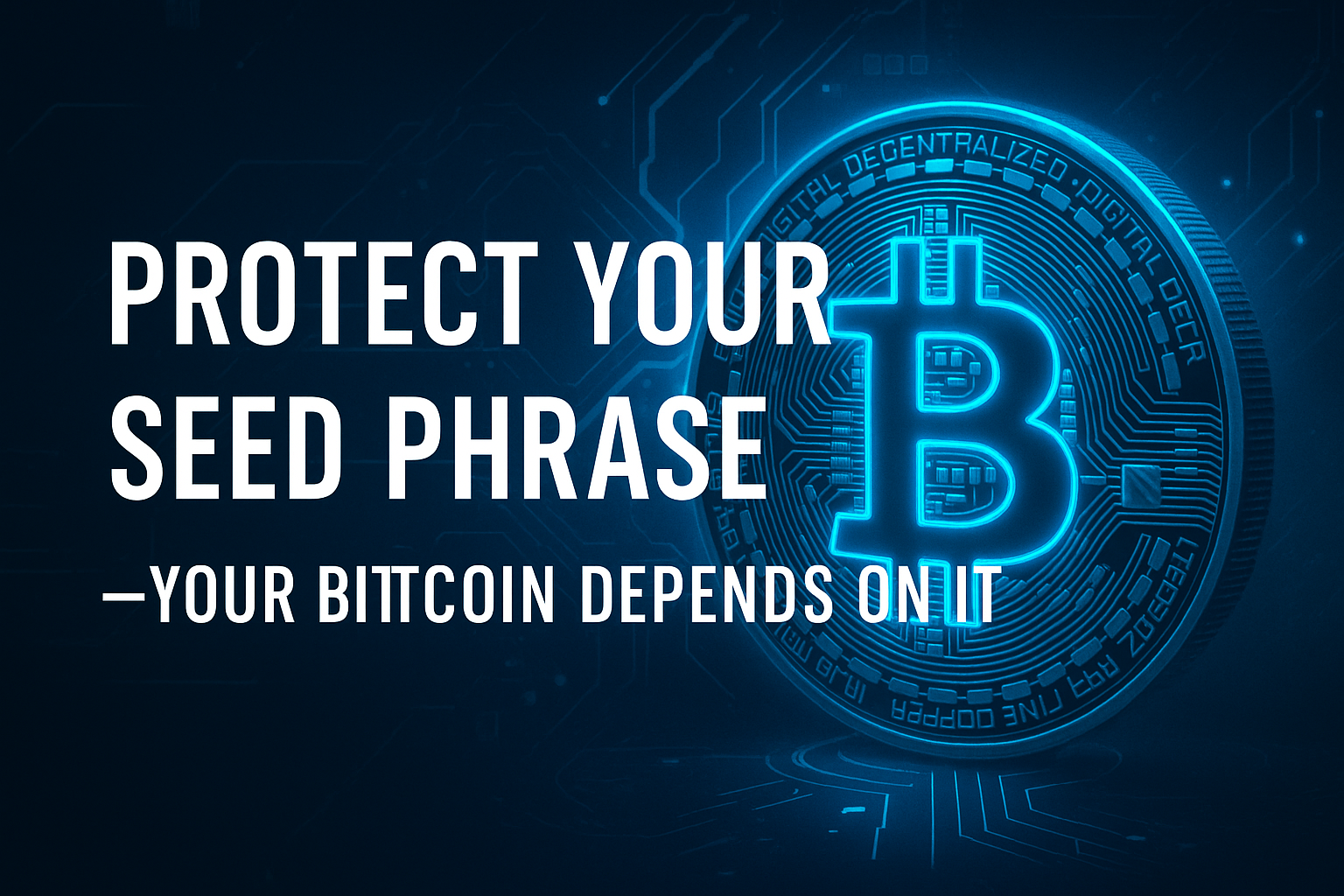What is a Bitcoin Private Key?
A Bitcoin private key is a long string of letters and numbers that allows you to access and control your Bitcoin. Think of it as the password to your Bitcoin wallet—but instead of typing it in, it works cryptographically behind the scenes.
When you own Bitcoin, what you actually own is the right to spend it. That right is secured by a private key. Anyone with access to your private key can move your Bitcoin. If you lose it, you lose access. If someone else gets it, they can take your Bitcoin.
How Private Keys Work
Bitcoin operates using public-key cryptography:
- Your private key is a randomly generated number.
- From that private key, a public key is derived using a mathematical formula.
- A Bitcoin address is then created from the public key.
When someone sends Bitcoin to your address, it can only be spent using the corresponding private key. This is how Bitcoin ensures ownership and security without needing usernames, passwords, or banks.
What Does a Private Key Look Like?
A Bitcoin private key is usually displayed in one of the following formats:
Hexadecimal
(64 characters)
E9873D79C6D87DC0FB6A5778633389….
WIF (Wallet Import Format)
(starts with a ‘5’, ‘K’, or ‘L’)
Why Private Keys Matter
The private key is your Bitcoin. If you don’t control your private keys, you don’t truly control your Bitcoin. Many exchanges and custodial services hold the private keys for you—meaning you’re trusting them not to get hacked, go bankrupt, or restrict your access.
Self-custody means you, and only you, control your private keys. This brings responsibility, but also unmatched financial sovereignty.
How Private Keys Are Stored
- Hardware Wallets : Physical devices that keep your key offline (cold storage). Extremely secure when set up properly.
- Paper Wallets : Printed copies of your private key or seed phrase. High risk if not stored in fireproof, waterproof conditions.
- Seed Phrases : A 12- or 24-word phrase that can regenerate your private key. Easier to write down and back up securely.
- Multisig Wallets : Require multiple private keys to approve transactions (e.g. 2 of 3). Safer for high-value or long-term storage.
Common Threats
- Loss: If you lose your private key (or seed phrase), your Bitcoin is gone—permanently.
- Theft: If someone gains access to your key, they can move your Bitcoin instantly and irreversibly.
- Phishing: Fake websites, apps, or emails can trick you into revealing your key.
- Improper Backups: A photo on your phone or a file on your computer can be hacked. Private keys should never be stored online.
Seed Phrases and Private Keys
Most wallets today don’t show you the raw private key. Instead, they give you a seed phrase—a human-readable backup that can recreate all your private keys.
Your seed phrase must be treated with the same care and secrecy as the private key itself.
Example (12-word seed phrase):
salmon cradle ceiling travel armor lens cloud virus fragile gym moment carry
Anyone with this phrase can take your Bitcoin. Store it offline, ideally in multiple physical locations.

Best Practices for Handling Private Keys
Never share your private key or seed phrase.
Back it up on paper or metal, not digitally.
Don’t store it on your phone, computer, or the cloud.
Test your recovery setup before sending large amounts.
Use multisig for large balances or inheritance planning.
Custody Models Involving Private Keys
Self-Custody (Single Key)
You hold the only key. Simple, but all risk is on you.
Collaborative Custody
You hold one key, with trusted partners others.
Custodial
Final Thoughts
Your private key is the foundation of your Bitcoin ownership. It’s not just a technical detail—it’s the core of your security. Whether you hold $500 or $5 million in Bitcoin, the way you handle your private keys will determine whether you keep it.
At Apex, we help clients understand private key management and build secure, tailored solutions using best-in-class tools—from hardware wallets to collaborative custody setups. If you’re unsure whether your Bitcoin is properly secured, we’re here to help.
Copyright © 2025 APEX | All Right Reserved
